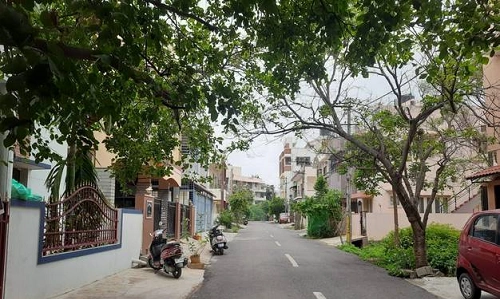Zara, a globally recognized fashion brand, is renowned for its trendy apparel, high-quality products, and fast-fashion approach. Owned by the Spanish company Inditex, Zara has made a significant impact in the Indian fashion retail market. Known for its stylish collections and rapid inventory turnover, Zara appeals to fashion-conscious consumers who seek premium clothing at reasonable prices.
For entrepreneurs interested in the retail fashion industry, Zara’s presence in India poses an intriguing opportunity. However, Zara operates differently in India compared to traditional franchise models. This article explores Zara’s business model, the costs associated with owning a Zara franchise, and the possibilities for partnerships in India.
Zara’s Business Model in India

In India, Zara operates as a joint venture between Inditex and Trent Limited, a Tata Group company. This partnership was established to align with Indian retail regulations and ensure seamless operations in the country. As a result, Zara does not offer direct franchise opportunities in India. All Zara stores are owned and managed by the joint venture, maintaining strict control over brand identity, quality, and operations.
Cost of Owning a Zara Store in India
While Zara does not provide individual franchise opportunities, understanding the cost structure of operating a Zara-like store offers insight into the level of investment required. Here’s an estimate of the typical expenses:
Initial Investment
- Real Estate Costs: Zara stores are strategically located in premium shopping malls or high-street locations. Leasing or purchasing such prime retail spaces can cost anywhere from ₹5 lakhs to ₹20 lakhs per month, depending on the city and locality.
- Store Setup Costs: Setting up a Zara-like outlet involves high-end interiors, advanced inventory systems, and modern fittings to align with the brand’s aesthetic. These costs typically range from ₹3 crores to ₹5 crores.
- Inventory Costs: Zara’s fast-fashion model requires frequent inventory updates. An initial investment of ₹2-3 crores is required for the first stock.
Recurring Costs
- Operational Expenses: Monthly costs, including salaries, utilities, and maintenance, can amount to ₹5-10 lakhs per month.
- Marketing Contributions: While Zara manages global and regional marketing efforts, running local promotional campaigns may require additional funds.
Profitability of a Zara Store
Zara stores are highly profitable due to their strong brand appeal and fast-fashion business model. Here’s a look at potential profitability:
- Revenue: Zara outlets in prime locations can generate monthly revenues ranging from ₹1 crore to ₹3 crores, depending on the city and footfall.
- Profit Margins: Zara operates on relatively high margins in the retail sector, with profit margins typically ranging between 15-20%.
- Breakeven Period: A Zara-like store can achieve breakeven within 2-3 years, provided it is located in a high-traffic area and managed efficiently.
Eligibility Criteria for Partnering with Zara
Although Zara does not offer direct franchises, businesses interested in collaborating or investing in similar ventures must meet the following criteria:
- Financial Capability: The ability to invest in high-end retail spaces and manage operational costs is essential.
- Location Access: Prime retail locations with high footfall are critical for success.
- Retail Expertise: Experience in managing large-scale retail operations or fashion brands is an added advantage.
- Commitment to Standards: Zara’s operations emphasize quality, aesthetics, and customer experience, which must be maintained rigorously.
How to Collaborate with Zara in India
- Supply Chain Partnerships: Zara’s fast-fashion model relies heavily on efficient suppliers and manufacturers. Indian businesses specializing in textiles or garment production can explore opportunities to partner with Zara’s supply chain.
- Real Estate Leasing: If you own commercial properties in premium locations, you can lease them to Zara, which is continually expanding its presence in India.
- Invest in Trent Limited: As Trent Limited operates Zara in India, investing in the company could provide indirect exposure to Zara’s growth.
Challenges of Operating a Zara-Like Store
- High Investment Costs: Setting up a premium retail store involves substantial upfront investment in infrastructure and inventory.
- Operational Complexity: Managing fast inventory turnover, maintaining quality, and delivering a seamless shopping experience require constant effort and expertise.
- Market Competition: The fashion retail market is highly competitive, with global and local brands vying for market share.
- Location Dependency: Success is heavily reliant on securing prime retail spaces in high-footfall areas.
Alternatives to Zara Franchise in India
If you’re looking to enter the premium fashion retail industry but cannot collaborate directly with Zara, consider these alternatives:
- Partner with Other Fashion Brands: Explore franchising opportunities with brands like H&M, Mango, or other global fashion retailers operating in India.
- Start a Private Label: Launch your own fashion brand focusing on fast fashion and premium quality to cater to Zara’s target audience.
- Invest in Multi-Brand Retail Stores: Open a retail outlet featuring multiple premium fashion brands, creating a diverse shopping destination for customers.
Conclusion
While Zara does not offer direct franchise opportunities in India, its unique business model and strong market presence present various indirect opportunities for entrepreneurs. By exploring collaborations, real estate leasing, or alternative fashion ventures, you can tap into the growing demand for premium fashion in India.
Understanding Zara’s operational strategies and aligning with its commitment to quality and innovation can help you succeed in the competitive retail landscape. With careful planning and strategic investments, you can carve a niche for yourself in India’s thriving fashion retail market.
Anantha Nageswaran is the chief editor and writer at TheBusinessBlaze.com. He specialises in business, finance, insurance, loan investment topics. With a strong background in business-finance and a passion for demystifying complex concepts, Anantha brings a unique perspective to his writing.


